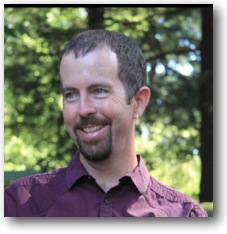What motivates people to change, change that endures? Some might say fear, dire circumstances, being forced to do so, or an impactful event or experience. I say it’s stories. To hear of another’s experience and identify with, be inspired by, or better understand another perspective can help people make shifts in how they act and react in the world, as individuals and collectively. When you normalize what once seemed foreign, scary, not relevant to your world, it can accelerate the mass adoption of it.
As strange as it may sound, it was Pixar that has shared some of the most valuable tips recently on using story telling for social impact, when story artist Emma Coats tweeted 22 tips. What does a mass media oriented children’s animation studio have to offer us? Plenty.

Among the best:
#1: You admire a character for trying more than for their successes.
#2: You gotta keep in mind what’s interesting to you as an audience, not what’s fun to do as a writer. They can be v. different.
#6: What is your character good at, comfortable with? Throw the polar opposite at them. Challenge them. How do they deal?
#11: Putting it on paper lets you start fixing it. If it stays in your head, a perfect idea, you’ll never share it with anyone.
#14: Why must you tell THIS story? What’s the belief burning within you that your story feeds off of? That’s the heart of it.
#16: What are the stakes? Give us reason to root for the character. What happens if they don’t succeed? Stack the odds against.
#17: No work is ever wasted. If it’s not working, let go and move on – it’ll come back around to be useful later.
#18: You have to know yourself: the difference between doing your best & fussing. Story is testing, not refining.
#20: Exercise: take the building blocks of a movie you dislike. How d’you rearrange them into what you DO like?
#22: What’s the essence of your story? Most economical telling of it? If you know that, you can build out from there.
Such gems to learn from here! The more sticky, identifiable, and audience oriented you make your story, the greater power it has. This can be applied to real life situations just as much as fictional. How you tell a story is as important if not more so than the story itself.
We’ve witnessed first hand the power of telling our stories of living the shareable life, generating an unprecedented amount of major media interest. And for change of a meaningful scale to happen, we need to reach out beyond the choir, to the skeptical, the uncommitted, the everyday among us. Change happens when those least likely do it see it as desirable, relevant to them.
Our recently published book Share Or Die is an extension of this belief. It can’t stop with us, thus we’ve been running a contest, your opportunity to tell the world how the shareable life has positively effected you. You have the power, through your words and video, to move somebody, somewhere in the world, to make a different choice. To feel more empowered. To start their own efforts where they live, further magnifying the impact. Yes, your story can do this.
What are you waiting for? We invite you to have fun, put your creativity and enthusiasm into sharing what’s been happening in your corner of the globe that we can learn from. Don’t hold back, we can’t wait to hear from you!
Image via Magenta Rose









